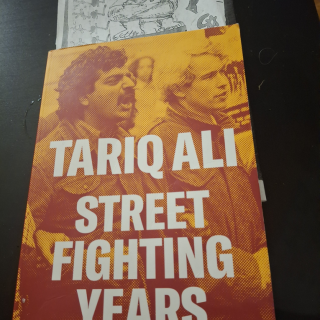In the Midnight Hour chronicles two parallel tracks of twentieth century African American history: the Great Migration, when 1.75 million African Americans left the rural south for the urban north from 1910 through 1940, and the story of the black American experience in the middle of the twentieth century as told through music.
Wilson Pickett was the fourth of eleven children and born in a shack; he grew up poor and hard in rural, Jim Crow Alabama. The Picketts were sharecroppers, and even the children worked the unforgiving fields. His father drank, and his mother had an explosive temper; Pickett inherited both traits. His parents were also religious and strict, but at least there was a radio in the house, albeit used exclusively to pick up religious services and music. Wilson and his siblings also sang in church. Pickett’s voice, however, was seen as something special early on. He eventually discovered four-part harmony, or quartet singing. Frequently the best singer among whomever he sang, he began leading the group in which his older brother, James and stepfather, Anderson Thomas, sang. When he graduated from Autauga County Training School in 1953, Wilson lit out for Detroit where his father lived.
Pickett landed in the Motor City during the second great migration of African Americans from the south to the north after World War II. His timing was fortuitous, as a number of young black singers had begun straddling the line between sacred and secular music. Hank Ballard, Jackie Wilson, Clyde McPhatter and Little Willie John were there, as were the Reverend C. L. Franklin and his precociously talented daughter, Aretha. A young Barry Gordy started a record label, Tamla. It seemed as though the whole city was singing.
While singing with a group known as the Violinaires, Pickett also began visiting and singing in Reverend Franklin’s church. Reared in a strict Baptist home, he was shocked at how church members, including Franklin, caroused and sinned copiously every weekend, but still showed up for church every Sunday, not always sober. And although he was attracted to the new sound that bubbled around him, he could not imagine a career singing secular music. But Pickett was also singing with the Falcons, and they recorded a well-received record, I Found a Love. He finally came to the conclusion that if he had to sing to hung over sinners in church, he might as well sing in clubs and get paid. He took off down the secular highway and rarely looked back.
On a trip to New York, he met the rock ‘n roll promoter Lloyd Price, and Price set him up with Jerry Wexler and the team at Atlantic Records. Named as one of the three so-called screamers–the others was James Brown and Otis Redding–Pickett’s career took off there. A string of hits followed: Barefootin, Land of a 1000 Dances, 634-5789, In the Midnight Hour, Ninety-nine and a Half (Won’t Do), Mustang Sally, Funky Broadway, I’m a Midnight Mover. Pickett and soul music were like conjoined twins. Along the way, he sometimes covered songs by white rockers–Hey Jude, done with a young Doug Allman, showcases some of Pickett’s best screaming–reworked the lyrics and sometimes the music of religious records so that they appealed to secular audiences, was one of the few artists to record with Stax and at Fame, an integrated studio in Muscle Shoals, and earned millions of dollars. He also earned the nickname Wicked after he pinched a young secretary on the butt as she was bending over in her miniskirt. The sobriquet stuck, and he even named one of his albums the Wicked Pickett.
Possessed with flawless, ebony hued skin, rakishly handsome features, and a megawatt smile, Pickett was also a hit with women. On the road, he forgot about his marriage vows, and once conducted a dangerous liaison with a white woman. He sent their baby home to his wife, Dovie Hall, and she reared him as her own.
But like manyartistes, Pickett had demons. “Fame, fortune, drugs, women: a familiar and addictive cocktail,” said Fletcher. Pickett beat his wives, girlfriends, son, and anyone else who he thought needed it. He carried a gun, and often threatened people with it. He regularly started the morning with a bottle of vodka, and drank throughout the day. Introduced to drugs by the musician Bobby Womack, Pickett forced his son, Michael, who was fourteen, to snort cocain with him in 1979. (It is no surprise that Michael developed a drug problem.) The drugs and the drinking made him paranoid. On a European tour with several other artists of the soul genre, Pickett became jealous when Sam Moore was such a hit with the audiences. Determined to stop Moore, Pickett hid in the false ceiling of the hotel at which they were all staying–how on earth did he pull that off?–and jumped on him. Moore was not hurt. But Pickett was increasingly out of control, and his propensity for violence earned him two stints in prison.
Tony Fletcher is an experienced chronicler of the American music scene. He is also an ardent fan of Wilson Pickett, and when he realized no one had written his life story, he set out to remedy the situation. In the Midnight Hour is highly detailed and briskly written; Pickett’s life fairly leaps off the pages. Fletcher makes the reader care about Pickett; I found myself rooting for him, hoping he could get his life together. Just as in real life, I was sad when disco made Wilson and his compatriots–James Brown, Sam and Dave, Percy Sledge, and Solomon Burke among them–all but irrelevant. To this day, my nephew, Rob, teases me about refusing to listen to any music made after 1968.
While his days of making albums were long over, Pickett toured sporadically. His last live show was in September 2004, in Tacoma, Washington. His health destroyed by drugs, alcohol, and violence, the Wicked Pickett died of a heart attack on January 19, 2006. He was only sixty-four years old.
Ride Sally, riiiiiide.



